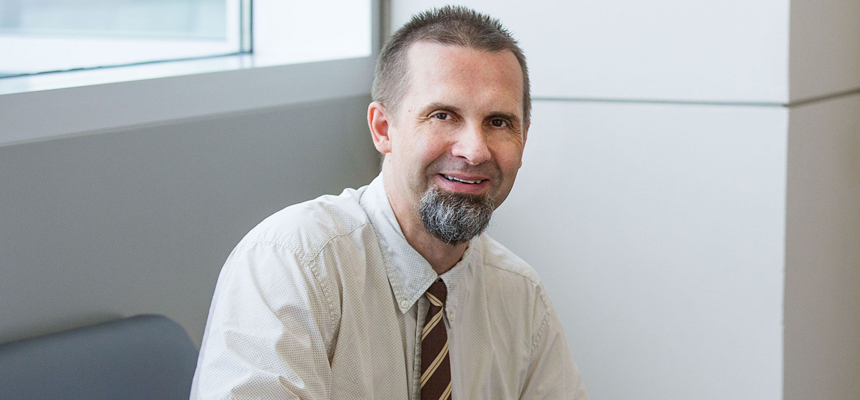Research aims to optimize brain’s defense mechanisms to combat TBI
By Jan Jarvis

A traumatic brain injury, or TBI, can happen to anyone at any age, in any place and under all manner of circumstances.
An estimated 1.7 million people in the United States experience loss of cognitive and sensorimotor functions following TBI annually. Those who survive the initial injury often cope with enormous losses in productivity, independence and quality of life.
Researchers at UNT Health Science Center, in collaboration with Epigen Biosciences Inc., a pharmaceutical company in San Diego, are exploring a family of novel compounds that could change how these injuries are treated. This Phase I study is funded by a $417,000 grant from the National Institutes of Health.
The path to clinically effective solutions for TBI is riddled with bumps and puddles, said Victor Uteshev, PhD, Associate Professor of Pharmacology & Neuroscience. TBI presents a considerable intellectual challenge because it is such a complex personal disorder. The concept of individualized medicine is highly relevant to TBI.
“Rephrasing Leo Tolstoy: Healthy brains are all alike, but every traumatically injured brain is unhealthy in its own way,” Dr. Uteshev said. “As a result, development of standardized treatments suitable for all or even many traumatically injured brains is a tremendous challenge. But solving scientific challenges is our job, not inconvenience.”
Despite multiple failures of other approaches in the treatment of TBI, Dr. Uteshev remains optimistic about his novel approach “because we have a powerful ally – nature. The human brain has an intrinsic ability to defend itself from injuries. The defense mechanisms that we study employ the Alpha-7 nicotinic receptors that are very common.”
A balanced activation of Alpha-7 receptors is beneficial for human health. Whenever a brain injury occurs, two simultaneous processes are automatically initiated as the injury stimulates Alpha-7 receptors. First, the brain tissue near the site of injury becomes protected from spreading injury. Then the injury-induced inflammation is mitigated to prevent additional injury.
What Dr. Uteshev proposes is to optimize these two processes by a single class of drugs called positive allosteric modulators of Alpha-7 receptors.
“These drugs may help achieves a healthy balance by modulating natural activation of Alpha-7 receptors after TBI,” he said. “We believe that our novel approach may eventually allow clinicians to optimize the hardwired natural defense mechanisms that are already pre-installed.”





Social media